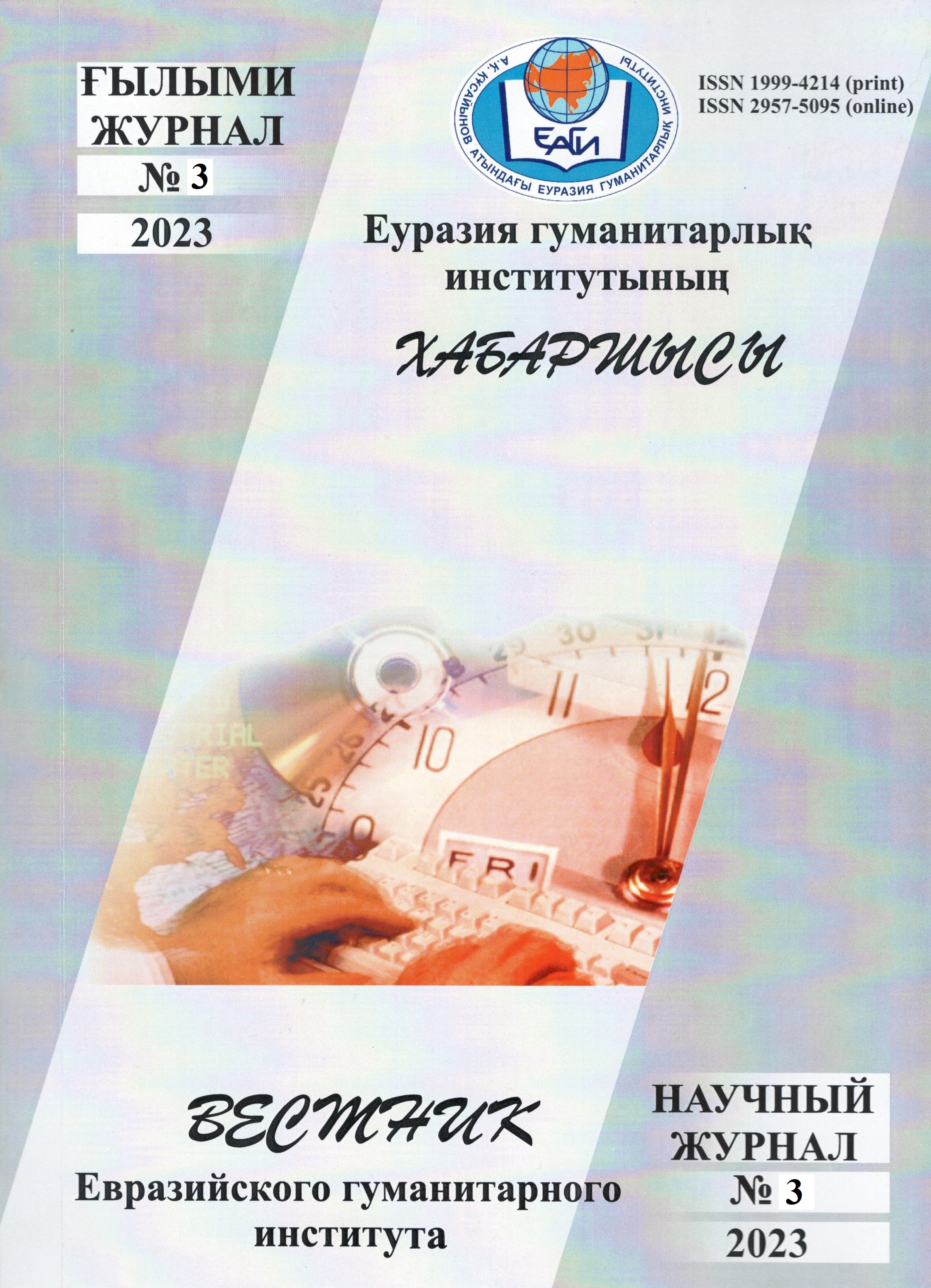THE CONCEPT OF ARCHETYPE IN LITERATURE AND JUNG'S THEORIES
Keywords:
archetype, collective unconscious, literary archetypes, K.G. Jung, the unconscious, myth, mythological image, literary studies.Abstract
Many thinkers of the twentieth century came to the conclusion that world culture does not have a common history, the content and meaning of each historical and cultural era cannot be borrowed from each other, nor can they be included. This conclusion opened an appeal to the study of traditional culture in the formation of a new culture of Kazakh literature. Along the way, the Masters of the word sought a new, global perception of the world through psychology, philosophy and mythology, and all directions became the prototype of the inner world. Any phenomenon in the universe, an emerging discovery, will also have an original origin. What we call the original is the origin of all creation on the planet, it is an archetype. In the article, the formation and entry of the concept of "archetype" into scientific circulation was associated with the name of the Swedish scientist Carl Gustav Jung and special attention was paid to the scientist's theory of archetypes. A brief description of the scientist's concepts of "personal unconscious", "collective unconscious" and archetypes "mother", "child", "shadow", "animus" and "Anima", "wise old man" was given. At the same time, attention is paid to the important opinions of both scientists before and after K. G. Jung about the origin of the term" archetype", and there is a desire to consider its use in literature from the point of view of various studies and concepts.


